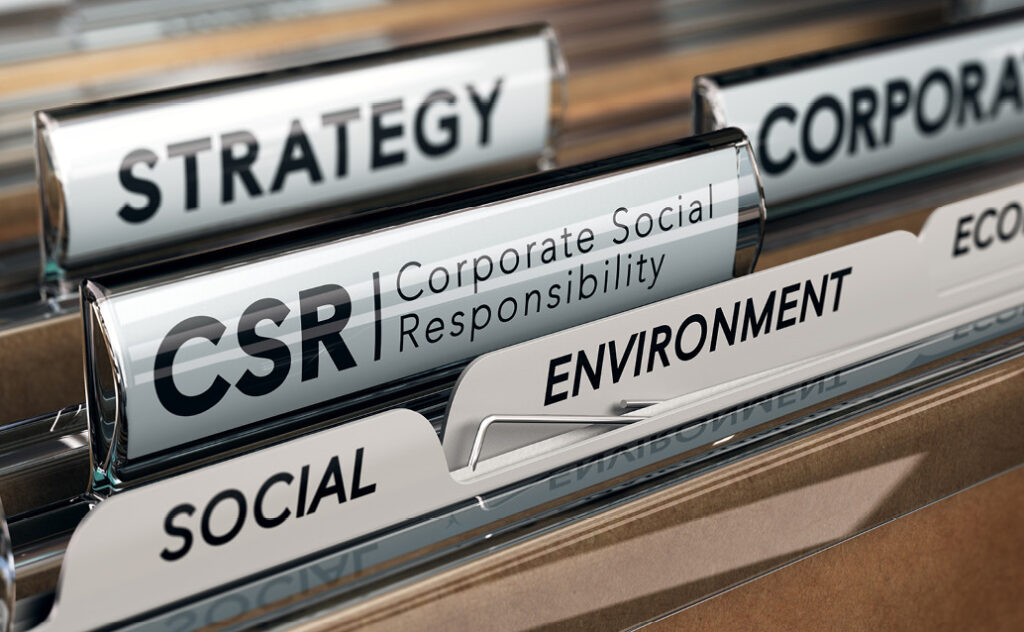
You might notice the word sustainability seems to be everywhere these days.
The push for sustainable development gained substantial attention in 2015 when the United Nations published “Transforming Our World: the 2030 Agenda for Sustainable Development,” which listed seventeen goals for nations around the world to accomplish by 2030. The UN Nation Members unanimously agreed to the 15-year goal and signed up for the challenge. Yoweri Kaguta Museveni, President of Uganda, noted that the agreement was “the dawn of a new era towards eradicating poverty, transforming economies and protecting the planet.”
An Emphasis on Corporate Social Responsibility
The UN’s call for sustainable development created a need for sustainability-minded leaders. Leadership decisions are an essential factor in sustainable development. The UN’s challenge, along with demands from stakeholders, led to numerous business leaders deciding to implement corporate social responsibility (CSR) into their decision-making and companies’ daily practices.
Governments oversee businesses through various regulations, such as environmental policies addressing air pollution, water use and waste management, to name a few. However, beyond meeting minimum regulation standards, there are no laws requiring businesses to adopt sustainability practices. Therefore, when we observe businesses promoting their sustainability efforts, those businesses are following self-imposed sustainability goals.
Typically, businesses share their CSR efforts and outcomes with stakeholders through annual reports. Other ways businesses promote their CSR accomplishments are through various mediums, such as emails, newsletters, websites and company blogs. But knowing CSR is a self-reporting business model meant to help, according to Investopedia, “a company be socially accountable to itself, its stakeholders, and the public” you might wonder, how do we know a business is meeting standard sustainability objectives?
B Lab is a nonprofit organization encouraging and supporting businesses in CSR practices. It’s best known for certifying businesses as B Corporations, known by their nickname as B Corps. B Corps are broad and diverse, found across numerous industries. (Famous brands include Patagonia, TOMS, Athleta, Ben & Jerry’s and Warby Parker. In 2016, American College of Education also became a Certified B Corp.) Businesses that become certified through B Lab have aligned their organizational goals with the UNs’ global agenda for sustainable development, pledging themselves to be measured against standards that are more objective than just self-reported metrics.
Preparing for Jobs in Sustainability
The rising focus on sustainability has created a need for business professionals with knowledge in this area, along with roles that focus on improving a company’s sustainability efforts. Those who wish to pursue jobs and careers in this area will need sustainability education.
The purpose of sustainability education is to increase students’ sustainability literacy. According to higher education professionals Susannah Diamond and Brian Irwin, sustainability literacy is “having the understanding, skills, attitudes and attributes to take informed action for the benefit of oneself and others, now and into a long-term future.”
The colleges and universities who have a pulse on industry trends are incorporating sustainability education into their curriculum, from revising courses to include topics of sustainability to new courses and programs with sustainability concentrations.
At ACE, for example, students can specialize their business degree in sustainability through a dedicated focus of study. This coursework prepares students to lead their communities and organizations in addressing sustainability issues and is available to students in any business program, whether it’s the MBA, M.S. in Organizational Leadership or M.Ed. in Educational Business Administration. Students learn:
- How various business structures incorporate sustainability, examining traditional corporations, benefit corporations, certified B Corps, nonprofit organizations and public institutions.
- The importance of collaboration and partnership and explore how organizations and stakeholders work together to create collective impact in their communities.
- About global challenges across the triple bottom line, a popular sustainability framework that helps businesses identify best practices and needed improvements beyond just a financial bottom line to include environmental and social implications.
Not only is this knowledge pivotal for launching a career within sustainability, but students are able to practice skills directly applicable to their professional life by demonstrate their learning through a variety of practical methods, such as traditional scholarly writing, recording podcasts and developing storytelling presentations.
There are less than six years to go before the world reaches the end of the UN’s 15-year challenge. With sustainability issues arising every day, the need for sustainability-minded leaders is greater than ever. Pursuing sustainability education is a great way to enter a growing business sector and make a difference with your business career.
Accelerate a career in sustainability with one of American College of Education’s fully online business programs, where you can specialize your degree in sustainability while also learning the general skills you need to be a successful business professional.

